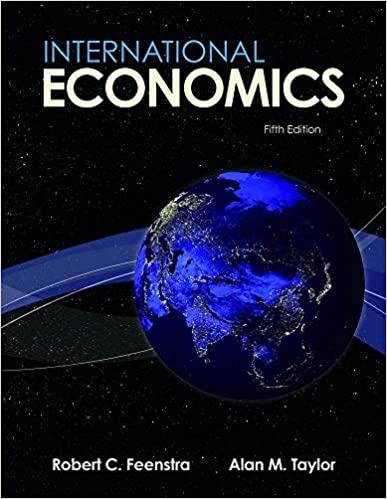In this question we will be testing an assumption of our model of exchange rate determination. In
Question:
In this question we will be testing an assumption of our model of exchange rate determination. In particular, you will be showing that the PPP assumption often fails in the short run, emphasizing the importance of the unifying approach discussed in this chapter. Go to the website of Federal Reserve Economic Data (FRED) at https://research.stlouisfed.org/fred2/ and download annual data for Consumer Price Indices for the United States, Japan, and Canada. In addition, download annual data for the U.S. dollar exchange rate with the Canadian dollar and Japanese yen going back to 1971. Put each data series into a separate column in a new spreadsheet.
a. We will want to check our assumption for relative PPP (that the difference in inflation between each of these countries and the United States should equal the change in the exchange rate). To do this you must first calculate the percent change in the spot exchange rate for each year. Do this for Japan and Canada with respect to the United States. In both cases, when did the largest appreciation occur? The largest depreciation?
b. Now check relative PPP as stated in Equation 3-2(14-2). Compute the difference in annual rate of inflation in these two pairs of countries (Canada and the United States, and Japan and the United States) and see if it is equal to the annual change in the exchange rate for the pair. Create a new column showing the magnitude of the deviation from relative PPP. Next, compute the mean and standard deviation for each country pair over the sample period. Are the means what you would expect them to be if PPP holds in the long run? What is the largest deviation from our PPP assumption?
c. Create a line graph showing the deviations from relative PPP plotted against time in each case. Does it appear that these deviations are trending toward zero over time? What appears to be the longest time before a deviation from PPP returns to zero?
Step by Step Answer:






